Academy of Data Science
Specialist retraining and training courses for new advanced data management specialists for private individuals and companies.




For students
Do you want to retrain and enter the IT world?Start your path to a profitable and promising specialty today with Datacademy courses!
For organisations
Specialist retraining and training courses for new advanced data management specialists for private individuals, companies and organizations.
Popular courses
Calendar
- Mo
- Tue
- We
- Th
- Fr
- Sat
- Sun
Student feedback


Participating in the Datacademy course was one of the best decisions on my learning journey! The lecturer shared not only theoretical knowledge, but also practical advice from real projects, so the learning was meaningful and inspiring. I recommend it to everyone looking for a quality start in the field of data science.


To become a data scientist, the course gives you everything you need and more, both in terms of material and information. The pace is fast, so you need to come prepared to work hard if you want to leave with a lot of money, because absorbing such a large amount of information in four weeks can be difficult for a completely fresh participant. I feel satisfied with the results of the course and am glad that I decided to participate in it, I recommend it :) Very friendly, welcoming team, always willing to help and answer questions.


I am very happy to have chosen the "DataCademy" courses. I have gained a lot of new knowledge, which I will definitely use in the future. The teachers are very wonderful, they explain everything clearly and simply, so that it is easy to understand. I sincerely recommend it to everyone!!! It is worth every minute spent here.


The data analytics courses were intense, but not tiring! The material was engaging and informative, the lectures and examples were interesting and relevant. I recommend not to be afraid to start from scratch and gain new knowledge in the field of data analytics!


Hello, I have completed the Datacademy data analytics course. The course was intensive, but very interesting. I learned new things and remembered old ones. The learning pace was good, we could ask questions at any time, stop the lecture and clarify any ambiguities during and after the lectures. The teacher Giedrius is very competent, cheerful and the lectures were not long. We had many practical tasks during which we could apply the knowledge we had acquired. It is great that we had the opportunity not only to study remotely, but also live in the classroom. I am glad that I chose the Datacademy data analytics course!


If you are thinking about data analytics courses, I recommend these, because they are taught by competent professionals in their field. The courses are intensive, but they professionally balance theory and practice, provide clear and systematic information, and give time and attention to each participant's question, so after the courses you can confidently expand your knowledge independently. Thank you!
Discount system

Repeat the course - free
All our students can repeat course for free

Our alumni - 15% discount
Are you a graduate? A great opportunity to take advantage of a 15% discount on any course!

2 an more students - GROUP DISCOUNT
We provide discounts for groups. Contact us!> We will answer all your questions!

Kursuok
Partially funded courses
Kursuok is a national adult education platform where you can choose the desired training and get 500 euros financing

UŽT
FULL funded courses
Don't miss out on the opportunity to get 100% funding for courses

Pay in parts
Payment in 3 or 6 parts after the course
Do not delay! Start learning NOW, and pay after the course
Lecturers

Rolandas Rimkevičius
Full Data Analytics Course, Full Data Engineering Course, SQL module, Power BI module, Python module, Power Apps module, Power Automate module, Power Shell module






















